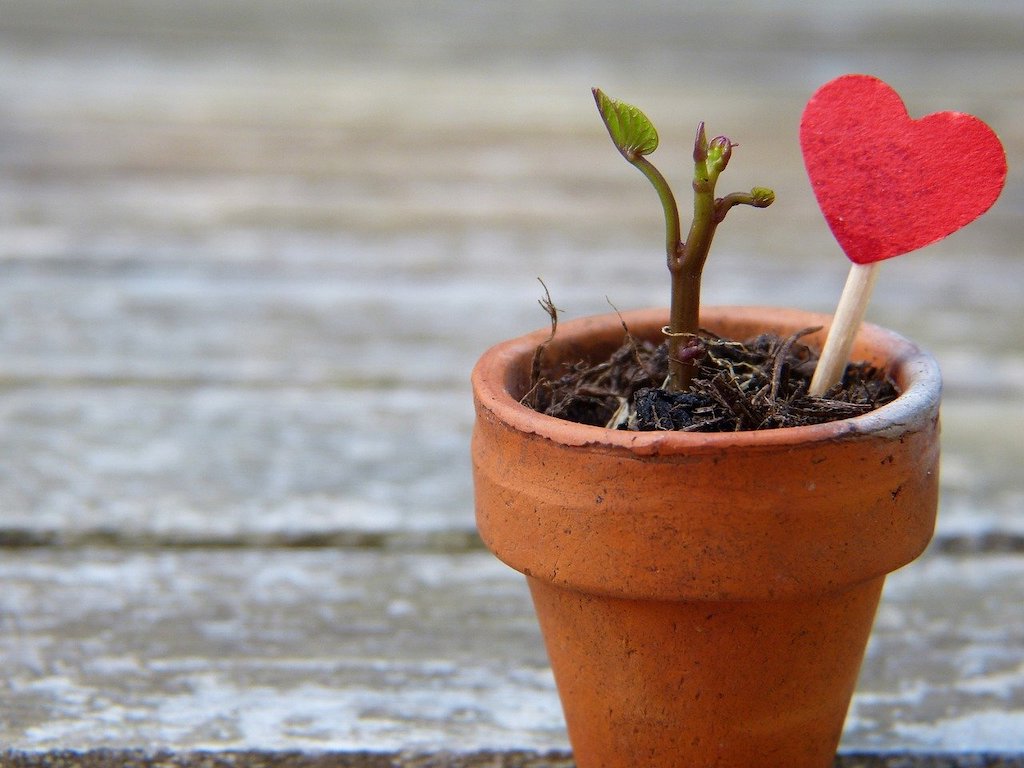SingaporeMotherhood | Parenting
January 2022
8 Expert Strategies to Build your Child’s Self-esteem and give them Confidence in Life

Did you know that letting your kids fail can help build their self-esteem? Learning to overcome failure, working through the experience, analysing where they went off track, and learning how to get back again… All these lead to valuable learning outcomes that go a long way in giving children the self-confidence to do-over. In the process, their self-esteem, or sense of self-worth, grows.
This is important as self-esteem in children plays a crucial role in children’s happiness, sense of worth and overall development. With it, they feel more confident and capable, and are comfortable asking for help and standing up for themselves, Families for Life Council Member Dr Elly Sabrina tells us.
Self-esteem also plays a part in building resilience, self-respect, and independence. When children feel that they have control over their decisions and actions, they are more intrinsically motivated. Furthermore, they will be able to build relationships better, and make well-balanced decisions regardless of peer pressure, Dr Sabrina adds.
But not too much…
While healthy self-esteem is beneficial, take care not to go overboard when trying to cultivate it in your child. “What we don’t want our children to develop are narcissistic tendencies where they have an inflated sense of importance, which may result in them being boastful and entitled,” Dr Mathew Mathews, Head of IPS Social Lab and Principal research fellow at the Institute of Policy Studies, cautions.
So how can you guide your child to build the right balance of confidence and humility? Three parenting experts share their views.
The experts:
Dr Elly Sabrina, Families for Life Council Member, Family Physician and Director of Banyan Clinic Pte Ltd, and Director of Madison Academy of Music ◎ Dr Kang Ying Qi, Member of the Advisory on Parenting For Families for Life Parenting, and Consultant, Child Development Unit, Department of Paediatrics Khoo Teck Puat – National University Children’s Medical Institute, National University Hospital ◎ Dr Mathew Mathews, Families for Life Council Member, Head of IPS Social Lab and Principal research fellow at the Institute of Policy Studies, National University of Singapore
What happens if a child has low self–esteem?
Dr Mathews: Low self-esteem is often associated with a number of emotional and behavioural issues. Children with low self-esteem are more likely to have poorer mental health and have greater difficulty dealing with family stresses or social pressures. They may subsequently be more likely to engage in deviant social behaviour. In contrast, a healthy level of self-esteem is positively related to aspirations and life success.
(See also: How to Parent your Child better based on their Chinese Zodiac Sign)
How can I tell if my child has low self-esteem?
Dr Sabrina: A person who has low self-esteem may:
- Have a negative self-image, and feel incompetent, unattractive, and unlikeable
- Lack confidence about their own abilities
- Not be able to cope well with failure
- Tend to avoid new things and dislike changes
- Constantly compare themselves to others in a negative way, instead of being proud of what they have achieved
- Tend to put themselves down
- Find it hard to form friendships, and feel victimised by others
- Feel lonely and isolated

When should parents start building their child’s self-esteem?
Dr Kang: Self-esteem begins to be built the moment parents have a responsive relationship with the child. In my opinion, there is no definitive age to start building a child’s self-esteem.
Self-esteem is like a bank. As it is built up through experiences over time, it can also be depleted by experiences over time. Hence, a child’s self-esteem requires constant nurturing to keep it in a healthy balance.
What other abilities should we help our children with?
Dr Kang: Developing self-regulation and self-care help children as well.
Self-regulation is about having ways to calm down in the face of stress and anxiety. It is a skill that develops over time and with practice. Furthermore, being able to soothe oneself is an important step to being more resilient (source: understood.org).
When your child is mildly upset, allow your child to sit in those uncomfortable feelings so that they get better and move past them. Rescuing or distracting your child from uncomfortable feelings too often might instead make a child feel helpless and more afraid the next time they experience uncomfortable feelings alone.
Self-care is about taking care of oneself to preserve wellness in both physical and mental health. Self-care can help children become more aware and introspective about taking care of their well-being.
Children usually learn physical self-care (e.g., taking breaks, eating healthily etc.) first before mental self-care (e.g., understanding when they need a break to calm down, asking for help when they feel too stretched etc.). The best way for children to learn this is by modelling their caregivers. When their caregivers give importance to self-care, children grow up prioritising their own needs too.
8 ways to build your child’s self-esteem
Dr Kang:
1. Praise the effort, not the outcome. When we praise children for what they can do and control, we give them control over their self-esteem. Conversely, when we praise children for achieving an outcome (e.g. ‘You are so smart!’ or ‘You did better than other kids!’) we remove their control over their self-esteem as they cannot always control the outcome of an activity.
So place the focus of control of a child’s self-esteem in their hands. For example, saying ‘You’ve worked so hard!’ or ‘You’ve got the hang of it!’ allows them to make efforts in building their self-esteem, rather than leaving it to external factors and outcomes.
2. When chiding the child, use actionable statements, not the child’s character. This helps the child learn that he/she is not inherently flawed. Instead of saying: ‘You got scolded for not doing your homework because you are always procrastinating/lazy’, consider saying: ‘Next time, complete your homework before you play so that you can be sure that you can hand up your homework on time.’

3. Set achievable, yet challenging targets i.e., know how much to stretch your child. We build self-esteem from overcoming challenges. Children feel proud of themselves when they have done something difficult or effortful. For very young children, start with daily activities like self-feeding, changing, dressing, showering, toilet training.
For older children, work on managing money, navigating to places, organising schedules, setting goals and working towards them. Being able to care and advocate for oneself with less reliance on an adult can help build autonomy. The process of overcoming these challenges and nurturing oneself can build self-esteem.
4. Allow your child to fail, then help them recover from the failure. Being able to succeed at challenges builds self-esteem. Being able to recover from failures is equally useful in building self-esteem. Successes and failures are part and parcel of growing up and of life. Being able to recover from failures helps the child develop resilience which contributes to the building of self-esteem.
(See also: How Visuals can help Nurture your Child’s Creativity and Critical Thinking)
Dr Mathews:
5. Give realistic feedback to help them better gauge their strengths and weaknesses. Express feedback positively even when it reveals an area of weakness, through words which do not undermine the child’s sense of who they are.

6. Encourage children to strive for growth. This means praising children when they succeed at a task. In the process, highlight that they used good strategies and worked hard to get the results they can be proud of. If they did not do well, use the opportunity to encourage them to learn from the experience. Such talk cultivates a desire for growth, which is a positive way of building self-esteem.
7. Accept them for who they are, no matter what they do. This does not mean heaping praise for bad behaviour. Rather, when you correct and discipline your children for misbehaviour, do it in a way that your child knows that they are still valued and accepted.
8. Engage with them on the negative encounters. Children will encounter unpleasant situations (e.g., being pushed in the playground, doing poorly on a test). Go beyond just finding out what happened. Ask how your child felt. This gives you an opportunity to provide a scaffold for your child’s experiences.
Instead of the child becoming fixated on negative thoughts where he/she runs himself/herself down or thinks poorly of his/her abilities, you can help to reframe the incident and provide a supportive perspective. For instance, you could ask your child what they did or said to themselves to cope better with the situation.
(See also: Why the Alternative to Tiger Mums is not “Laissez-faire Parenting” but “Attentive Parenting”)
Self-esteem and your child
Just as Rome wasn’t built in a day, a child does not develop self-esteem in an instant. As Dr Kang reminds us, the self-esteem bank requires constant nurturing. So be patient with your little ones (and yourself!). As you continue to convey these lessons to them with love and empathy, you’ll be helping your children cultivate that self-assurance, quiet confidence, and self-worth, for life.
Families for Life supports the Alliance for Action (AfA) on understanding children’s needs better, and strengthening marriages and family relationships. Visit https://familiesforlife.sg for resources to help you through your parenting journey. You can also visit Families for Life 365 for Family Life Education (FLE) programmes that equip parents with techniques to promote their children’s psychological, social and emotional competence.
Featured image: Pexels
All content from this article, including images, cannot be reproduced without credits or written permission from SingaporeMotherhood.
Follow us on Facebook, Instagram, and Telegram for the latest article and promotion updates.





